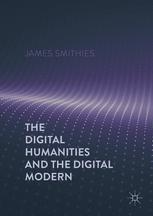

Most ebook files are in PDF format, so you can easily read them using various software such as Foxit Reader or directly on the Google Chrome browser.
Some ebook files are released by publishers in other formats such as .awz, .mobi, .epub, .fb2, etc. You may need to install specific software to read these formats on mobile/PC, such as Calibre.
Please read the tutorial at this link: https://ebookbell.com/faq
We offer FREE conversion to the popular formats you request; however, this may take some time. Therefore, right after payment, please email us, and we will try to provide the service as quickly as possible.
For some exceptional file formats or broken links (if any), please refrain from opening any disputes. Instead, email us first, and we will try to assist within a maximum of 6 hours.
EbookBell Team

5.0
20 reviewsThis book provides new critical and methodological approaches to digital humanities, intended to guide technical development as well as critical analysis. Informed by the history of technology and culture and new perspectives on modernity, Smithies grounds his claims in the engineered nature of computing devices and their complex entanglement with our communities, our scholarly traditions, and our sense of self. The distorting mentalité of the digital modern informs our attitudes to computers and computationally intensive research, leading scholars to reject articulations of meaning that admit the interdependence of humans and the complex socio-technological systems we are embedded in. By framing digital humanities with the digital modern, researchers can rebuild our relationship to technical development, and seek perspectives that unite practical and critical activity. This requires close attention to the cyber-infrastructures that inform our research, the software-intensive methods that are producing new knowledge, and the ethical issues implicit in the production of digital humanities tools and methods. The book will be of interest to anyone interested in the intersection of technology with humanities research, and the future of digital humanities.